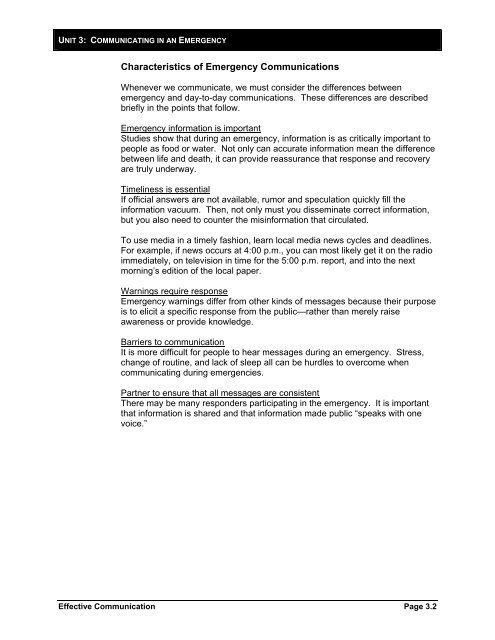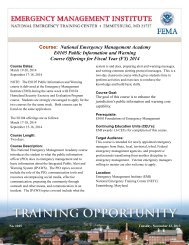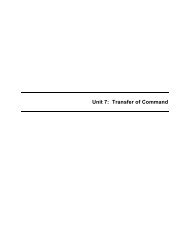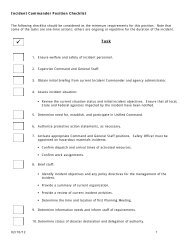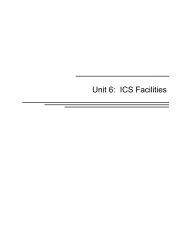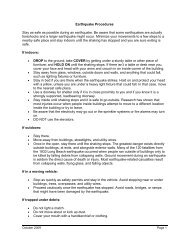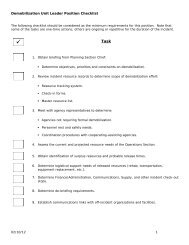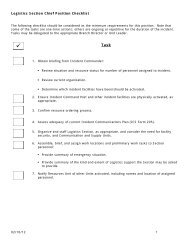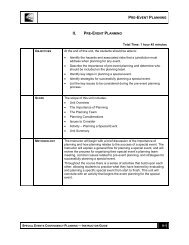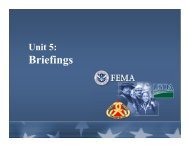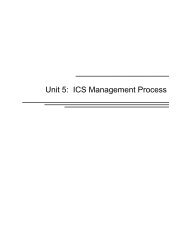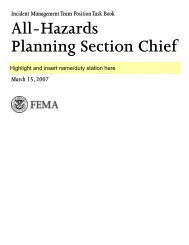Effective Communication - Emergency Management Institute ...
Effective Communication - Emergency Management Institute ...
Effective Communication - Emergency Management Institute ...
Create successful ePaper yourself
Turn your PDF publications into a flip-book with our unique Google optimized e-Paper software.
UNIT 3: COMMUNICATING IN AN EMERGENCY<br />
Characteristics of <strong>Emergency</strong> <strong>Communication</strong>s<br />
Whenever we communicate, we must consider the differences between<br />
emergency and day-to-day communications. These differences are described<br />
briefly in the points that follow.<br />
<strong>Emergency</strong> information is important<br />
Studies show that during an emergency, information is as critically important to<br />
people as food or water. Not only can accurate information mean the difference<br />
between life and death, it can provide reassurance that response and recovery<br />
are truly underway.<br />
Timeliness is essential<br />
If official answers are not available, rumor and speculation quickly fill the<br />
information vacuum. Then, not only must you disseminate correct information,<br />
but you also need to counter the misinformation that circulated.<br />
To use media in a timely fashion, learn local media news cycles and deadlines.<br />
For example, if news occurs at 4:00 p.m., you can most likely get it on the radio<br />
immediately, on television in time for the 5:00 p.m. report, and into the next<br />
morning’s edition of the local paper.<br />
Warnings require response<br />
<strong>Emergency</strong> warnings differ from other kinds of messages because their purpose<br />
is to elicit a specific response from the public—rather than merely raise<br />
awareness or provide knowledge.<br />
Barriers to communication<br />
It is more difficult for people to hear messages during an emergency. Stress,<br />
change of routine, and lack of sleep all can be hurdles to overcome when<br />
communicating during emergencies.<br />
Partner to ensure that all messages are consistent<br />
There may be many responders participating in the emergency. It is important<br />
that information is shared and that information made public “speaks with one<br />
voice.”<br />
<strong>Effective</strong> <strong>Communication</strong> Page 3.2


